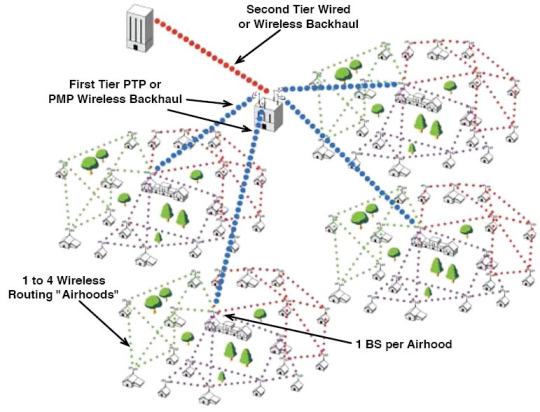It is clear nowadays that users are becoming increasingly interested in accessing multimedia and interactive applications on their mobile terminals. Therefore, there is a need to implement robust Quality-of-Service (QoS) and Quality-of-Experience (QoE) architectures capable of providing low delay for such interactive applications, while at the same time dealing with other bandwidth-hungry but more delay-tolerant services, and thereby maximizing the network’s available resources and improving the end-user experience. The IEEE 802.16 standard represents one of the most relevant and advanced technologies for broadband wireless access in metropolitan area networks. The point-to-multipoint (PMP) mode of IEEE 802.16 has been designed to support quality of service (QoS) requirements, controlled by the network operator, thus complementing the existing third-generation mobile solutions. An alternative mesh (MESH) mode of operation allows the creation of flexible, self-configuring networks with traffic routing through various nodes. This work approaches the subjects of QoS and QoE when applied to wireless mesh networks operating under the IEEE 802.16 standard. It provides improvements and performance evaluations of a new architecture to bring QoS support to the 802.16 MESH mode of operation. It also presents a new packet scheduler with the aim to improve the subjective quality of audio, video and file transfer services, as experienced by the end user. Simulation results demonstrate both the efficiency of the QoS architecture in terms of objective measurements such as throughput and packet delay, and the good functioning of the QoE-aware packet scheduler, with noticeable increases in subjective quality metrics.

Figure 1. Example topology of a mesh-based broadband wireless access network.